Transition happens. Sometimes slowly; sometimes fast. At times, in style. Mercedes-Benz, the German carmaker that began its switch to electric vehicles (EV) sometime in 2016, formulating an EV-only strategy by the end of this decade, has been steadily building its luxury EV fleet.
The latest vehicle to hit Indian roads from the company’s EQ sub-brand is the EQE SUV, which comes in multiple variants and trim lines globally.
All of its EQE SUVs are powered by a 90.6kWh battery that supports 170kW of DC fast charging. That simply means the vehicle’s battery can be charged up to to 80% capacity in a little over 30 minutes. The top-of-the-line (non-AMG), EQE 500 4Matic, which we drove in Gulmarg, Kashmir, gets a 300-kW output.
For those looking for internal-combustion engine (ICE) lingo, this car’s electric motor can produce 408hp and has a peak torque of 858Nm. This car runs on an all-wheel drive (AWD) system, which makes the powertrain supply electric power to move all four wheels separately. Merc claims this EV can go anywhere between 465 to 550km in a single charge. We think that’s a stretch, and we will tell you why in our detailed review below.
(For top technology news of the day, subscribe to our tech newsletter Today’s Cache)
Design
The EQE 500 SUV exudes luxury, and its aerodynamic design makes it look futuristic. The black star-pattern front grille makes the car shed its ICE past and look to an electric future. The electric light strip connecting the headlights gives the car a sharp front look. The digital headlamps, powered by over two million pixels, light up the path ahead intelligently.
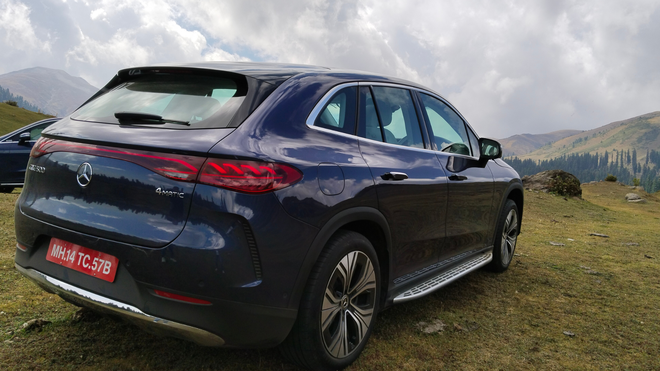
The digital headlamp tech is not new. It was first introduced in the Mercedes-Maybach five years ago. At its core is a chipset that powers millions of micro-receptors that take input from cameras and sensors to adapt light settings to suit the situation.
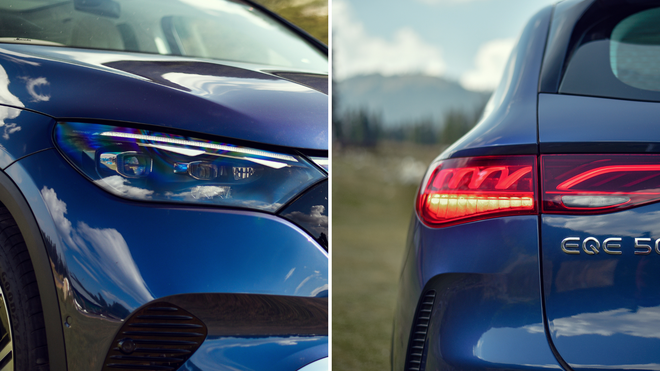
The car’s door handles sit flush, and the running boards on either side are illuminated with LED light. While we found the running boards to be a bit broad, which made it slightly inconvenient to step out of the vehicle, we felt the overall design helped the vehicle reduce drag, wind noise, and prevent undesired lift forces that may cause aerodynamic instability at high speeds.
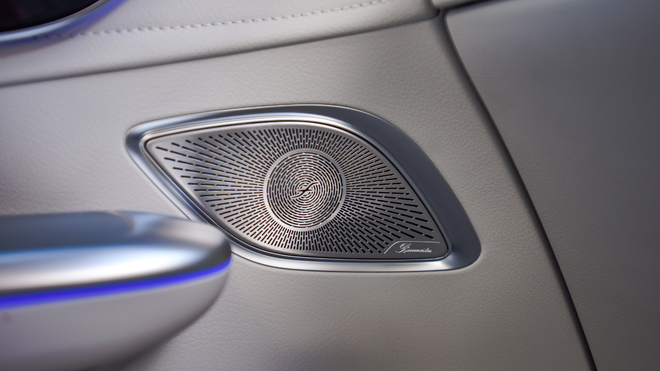
The rear part of the car has a smooth and elegant finish with an electric light strip running between the helix-shaped taillights.
Handling
The Mercedes EQE SUV feels smooth, steady and grounded, and it drives like a breeze. The car does not betray its muscular frame and a 2.5-ton plus heavy body. Its electric powertrain, as noted earlier, produces 408hp and a peak torque of 858Nm, making the car cruise on empty roads.
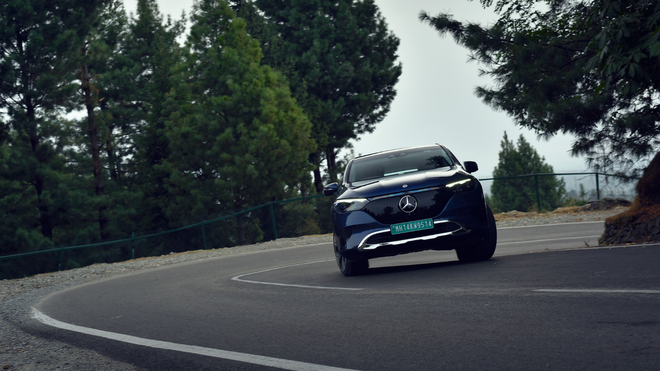
The company claims a top speed of 210kmph, which we could not touch during our drive in Kashmir. Mercedes claims the EQE SUV can accelerate from 0 – 100 kmph in just 4.9, and we can confirm that the claim is quite accurate. When we drove the car from Gulmarg to Srinagar, the EQE SUV handled well all situations. We did not feel like we were driving a large, heavy car. The AWD system handled turns quite well, and even when off-roading, we could comfortably manoeuvre this large EV quite easily. We just had to ensure that there was sufficient ground clearance. Even here, we found this Mercedes to handle uneven roads quite well.
Battery and range
The EQE SUV, like other EVs from Merc, comes with a 400V lithium-ion battery. The battery has an automatic crash shut-off feature that disconnects it from the high voltage (HV) system. And the battery cells are also placed in a protected zone under the passenger cabin. Mercedes gives the EQE SUV a 10 year or 2.5 lakh kms battery warranty.
Like most other luxury EVs, this Mercedes too can be charged on DC and AC power. The former takes 32 minutes to charge up to 80% capacity, and the latter could take up to eight hours for the same amount of charge. That’s because the AC charging capacity is 11 kW.
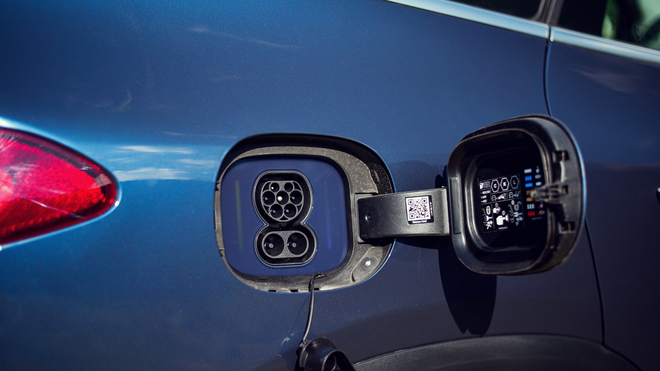
In terms of the range, Mercedes promises 465 kms as its lower range per WLPT testing standard. But we think this is a long shot. We covered about 80 kms in a day on both hilly terrains and flat roads. Some stretches of our drive was on uneven and rocky roads. By the end of of our drive, the battery charge was down to about 55%. The steep drop could be partly attributed to the various tech high-tech features we were using in this car. But we still think the range claim is a bit on the higher side.
MBUX and hyperscreen experience
Moving on to the infotainment and high tech features. The EQE SUV is equipped with state-of-the-art tech features. The first thing you will see as you get into this plush car is the 56-inch wide hyperscreen that extends from one side of the vehicle to the other. The OLED central and passenger screens are the same as the ones that come in the EQS variant.
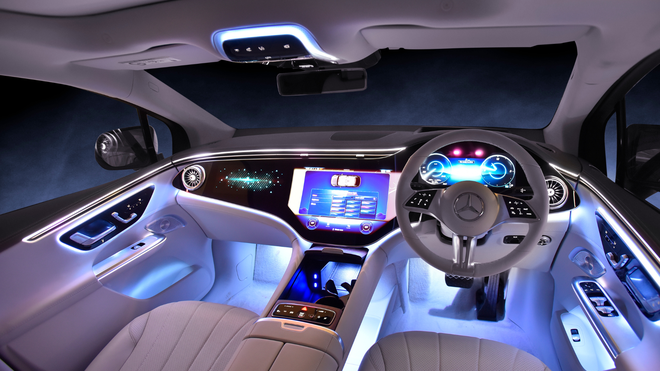
This screen is the portal to access all of the car’s high tech features. We covered the hyperscreen feature extensively in our Mercedes-AMG EQS 53 4Matic review. Almost all the features in the AMG version are available in the EQE SUV, except the Android tablet between the two rear seats.
We liked the massage feature, which we kept turned on during most of our drive. This Mercedes offers eight massage options for the driver and the passenger sitting next to them. We tried all the options, and they were distinctly different and soothing. The hot-stone massage felt almost real and quite relaxing. The massage feature is activated only when a passenger is seated. The feature does not turn on when the seat is empty.
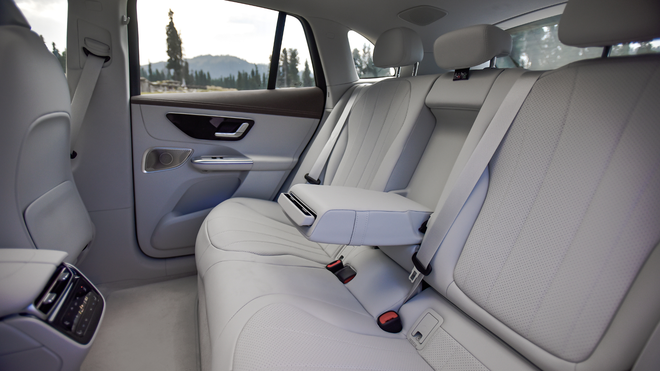
Our gripe is that the rear passenger seats do not have the massage feature. We presume here’s where the owner may sit in this Rs 1.39 crore priced, probably chauffeur-driven, EV, and Merc should have included this feature here as well.
The driver assist features are top-of-the-line, but some may need India-specific tweaks. For instance, the anti-collision features are too Europe-specific, which will make it a bit hard for drivers to move around Indian cities unless default settings are reset every time the vehicle is switched on. For instance, when the vehicle is in default mode, the driver will have to tightly grip the steering wheel. If not, the car assumes the driver is inattentive and the alert system will halt the EV.
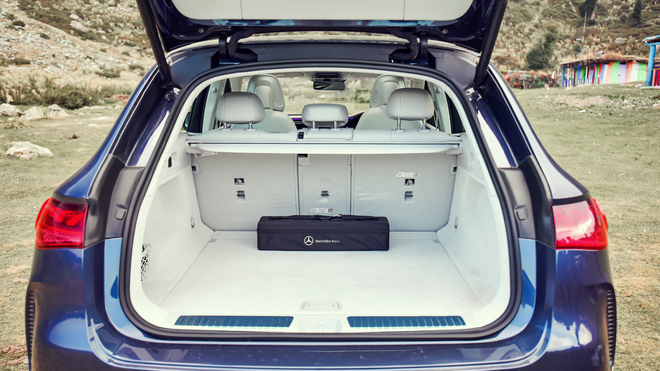
On the hyperscreen, the driver can get a view of the car’s suspension and AWD systems. While off-roading, they can get a clear view of the terrain underneath the vehicle to manoeuvre the car deftly.
The ‘Hey Mercedes’ feature was not up to the mark in terms of accommodating alternative vocabulary. For instance, when we asked the car to ‘open the sunroof’, it said the feature was not activated. But, when we asked it to ‘open the sunblinds’, it promptly pulled it back.
Verdict
The EQE SUV stands out when it comes to overall aerodynamic design, handling, and high tech features. In some sense it reminded us of the EQS, making this vehicle look like EQS’s younger sibling from the EQ family. We felt the EQS, which is only slightly more expensive (ex-showroom price is ₹ 1.55 crore) than the EQE SUV, has some cool additional features , more space for rear passengers, and comes with a 107.8 kWh battery capacity, may tip the customer in its favour. Still, the EQE SUV may be a good option for someone who does not prefer to be chauffeur driven. Overall, the EQE SUV seemed like an amber gambler from the German automaker that looks to fill a gap in its expanding luxury EV fleet as other luxury carmakers pack 800V Li battery into their EVs.







